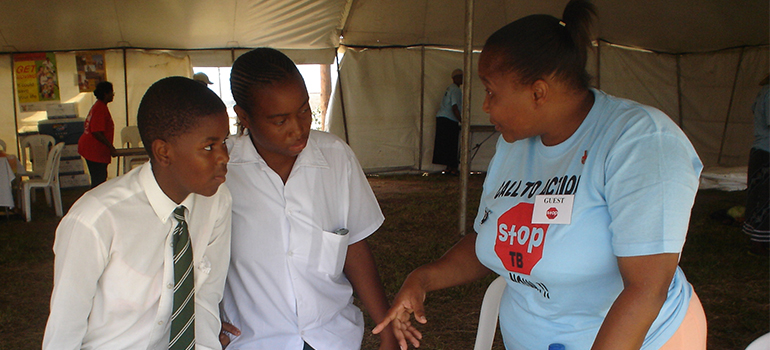Ahead of World TB Day on March 24, UBC researcher Charles Thompson discusses the impact of the deadly disease at home and abroad
World TB Day — March 24 — marks Robert Koch’s 1882 discovery of the Mycobacterium tuberculosis bacillus. Today, TB remains one of the world’s most serious health threats, killing millions annually in the developing world, and affecting communities in Canada. UBC researcher Charles Thompson and colleagues at UBC’s Centre for Tuberculosis Research are investigating new approaches to combat TB. Next week, they’re also holding public talks to increase awareness of this surprisingly stubborn disease.
Many people view TB as either a historical disease, or a modest problem isolated to the developing world. What are some of the global impacts of TB?
The World Health Organization estimates that two billion people—one-third of the world’s population–are infected with the bacterium that causes TB. While significant efforts have been made to diagnose and treat the disease, the staggering size of the problem and resources necessary are formidable barriers. Aside from the dramatic mortality rate, TB infection drains approximately $12 billion from the annual incomes of the world’s poorest communities.
This is a Canadian problem. As a globally-minded, developed country, we have a responsibility to aid the developing world in their battle against this devastating disease, and to treat individuals that may acquire TB here at home.
How does TB impact communities closer to home?
Aboriginal, foreign-born, and HIV-infected populations have an increased incidence of the disease. In metropolitan centres such as Vancouver, which have a large HIV-infected, homeless population, and illicit street drug use among the homeless population, there is the growing fear and reality that drug resistant TB strains might spread.
In a careful analysis of a recent outbreak of tuberculosis in B.C., a group of local scientists, clinicians and health care workers showed how the disease spreads throughout high risk social networks in aboriginal populations, reemphasizing the need to identify and treat carriers of TB as soon as possible.
What can people do to get involved and help?
At a policy level, we can provide more support for local research teams. Researchers at UBC would like to develop new therapies for TB that use new combinations of existing drugs to combat TB, and have identified compounds that inhibit TB’s formidable drug resistance. We’ve also identified compounds that assist the human immune system to resist and eliminate infection, and are investigating ways to starve TB of the cholesterol it needs to grow. Public understanding and support is key to building on the promise of this research.



















